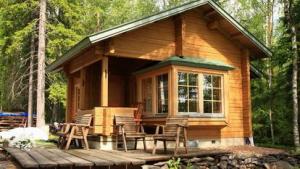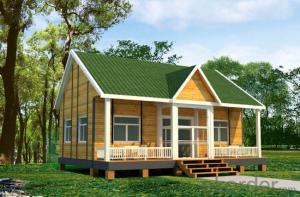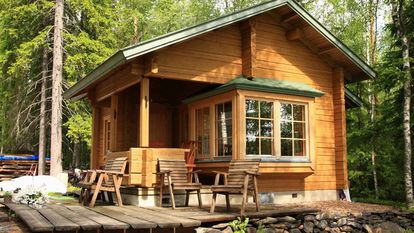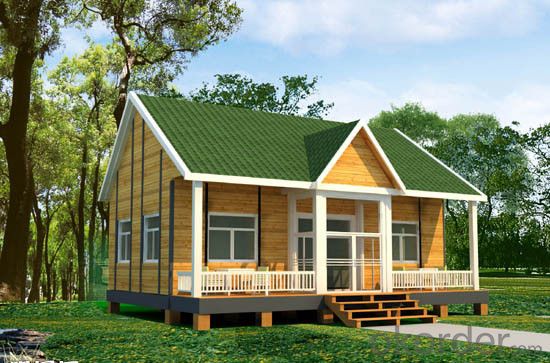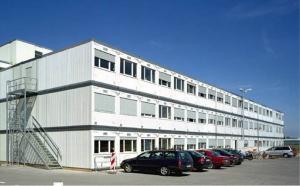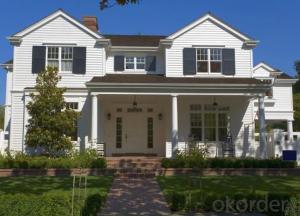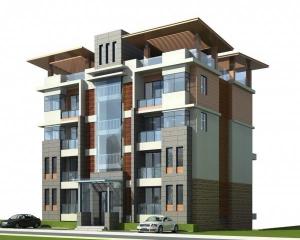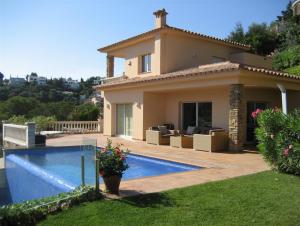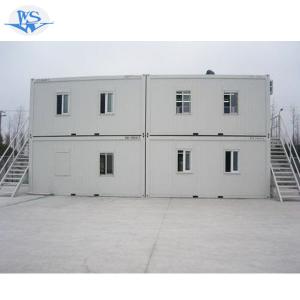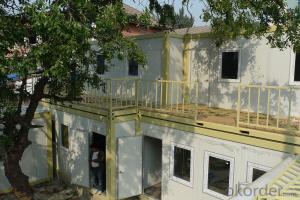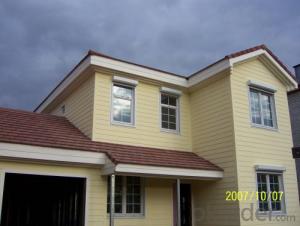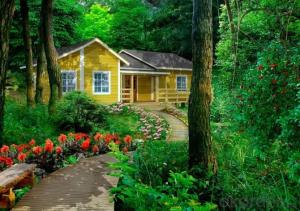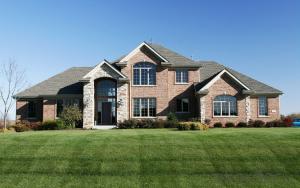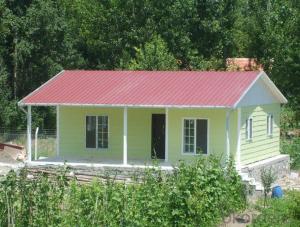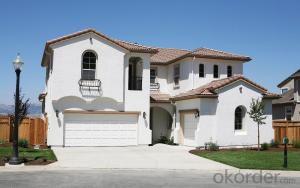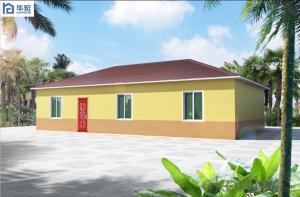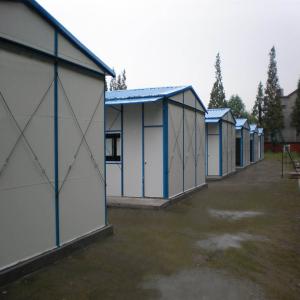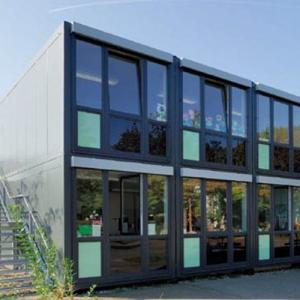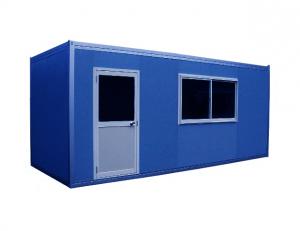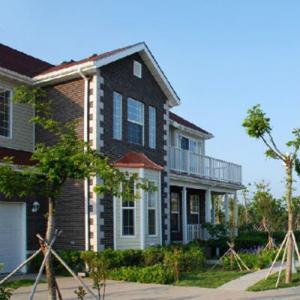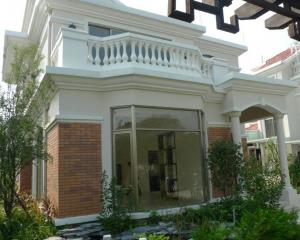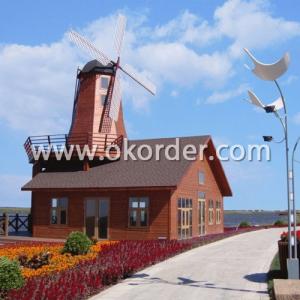Wooden Houses Made in China with High Quality
- Loading Port:
- Shanghai
- Payment Terms:
- TT OR LC
- Min Order Qty:
- 1 m²
- Supply Capability:
- 1000 m²/month
OKorder Service Pledge
OKorder Financial Service
You Might Also Like
Wooden Houses Made in China with High Quality
Prefabricated Wooden house:
* Prefabrication, easy to install and disassemble
* Precision works, long life-span up to 15 years for use
* Lightness, easy to transport and relocate
* Using several times and recycling, economy and environment friendly
Prefab house Main material list as following:
Wall: 50mm/75mm thick EPS/Rockwool/PU sandwich panel
Roof: 50mm/75mm thick EPS/Rockwool/PU corrugated sandwich panel
Window: UPVC or Aluminum sliding window
Door: aluminum frame with panel same as wall panels(security door as optional)
Prefab house Joint material: steel column/aluminum alloy
1. Free from the damages by inspects, such as white ants and so on
2. Steel code: Q345, Q235
3. Designed life span: more than 30 years;
4. Green and environment-friendly materials used;
5. Seismic resistance up to 8 magnitudes
6. Safe---Able to stands for maximum 55 m/s typhoon
7. Advanced roof and wall cladding material guarantee excellent acoustic insulation, less 65% energy consumption than the concrete structure.
8. Additional 10%-15% net area compared to the traditional building, air cavity between the cladding and main structure guarantees the comfortable indoor space.
Prefab house advantage
1. Easy and quick to install;
2. Excellent load and span capabilities;
3. Significant savings in site installation costs;
4. Panel comes in a range of aesthetically pleasuring colors;
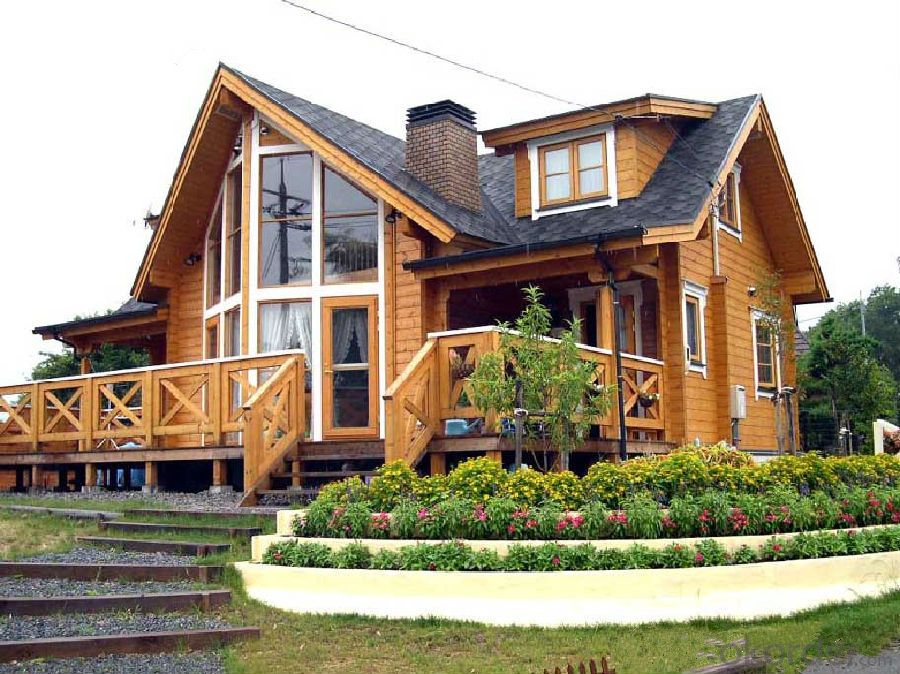
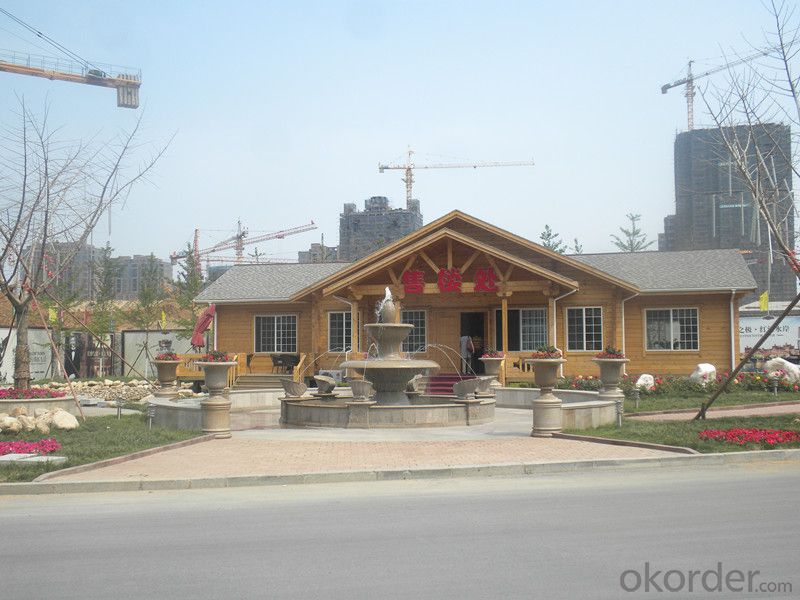
- Q: Are container houses eligible for financing?
- Yes, container houses are eligible for financing. Many financial institutions offer loans or mortgages specifically designed for purchasing and building container homes. However, eligibility criteria and terms may vary depending on the lender and the specific project.
- Q: Are container houses suitable for homeless shelters or transitional housing?
- Yes, container houses can be suitable for homeless shelters or transitional housing. They are cost-effective, easy to transport, and can be quickly assembled. Container houses also provide a secure and comfortable living space, offering an opportunity for individuals to transition out of homelessness into more stable housing.
- Q: Can container houses be insulated for extreme temperatures?
- Indeed, container houses can be effectively insulated to withstand extreme temperatures. Insulation plays a vital role in the construction of container houses, particularly in extreme temperature conditions. There are several insulation options to choose from, including spray foam insulation, rigid foam insulation, and fiberglass insulation, all of which effectively regulate the temperature within the container house. These insulation materials are specifically designed to offer exceptional thermal resistance, preventing the transfer of heat or cold from the external environment. Furthermore, it is crucial to ensure thorough sealing and insulation of the container house to avoid any air leaks that may compromise its energy efficiency. With proper insulation, container houses can be sufficiently prepared to endure extreme temperatures and establish a comfortable living environment indoors.
- Q: Are container houses resistant to vandalism or break-ins?
- Container houses can be resistant to vandalism or break-ins, depending on the security measures implemented. These houses can be made secure by installing high-quality doors and windows, adding sturdy locks, and incorporating security systems such as surveillance cameras or alarms. Additionally, proper lighting and a secure location can further deter potential vandals or intruders. However, it is important to note that no dwelling is completely immune to vandalism or break-ins, and regular maintenance and security checks are necessary to ensure continued protection.
- Q: Can container houses be designed with a garage?
- Yes, container houses can be designed with a garage. Container houses are versatile and can be customized to meet individual needs and preferences. By strategically planning the layout and design, it is possible to incorporate a garage space within a container house. This can be achieved by either extending the container structure to accommodate the garage or by creating a separate container module specifically for the garage. The size and design of the garage can be tailored to fit the available space and intended use, whether it's for parking vehicles, storage, or a workshop. With proper planning and design, container houses can definitely be equipped with a functional garage.
- Q: Do container houses require permits for construction?
- Yes, container houses typically require permits for construction. The requirements for permits may vary depending on local building codes and regulations. In many jurisdictions, container houses are considered as alternative or unconventional forms of housing, and therefore, they may have specific regulations and requirements that need to be met in order to obtain the necessary permits. It is important to consult with the local building department or planning commission to determine the specific permits and approvals needed for container house construction in your area. This will ensure that your project is in compliance with all applicable regulations, building codes, and zoning restrictions.
- Q: How do container houses compare to traditional houses in terms of durability?
- Container houses are generally considered to be more durable than traditional houses. This is because they are constructed using steel shipping containers that are designed to withstand harsh weather conditions and heavy loads. Additionally, container houses are often built with reinforced structures, making them more resistant to natural disasters such as earthquakes and hurricanes. However, it is important to note that the overall durability of a container house can vary depending on the quality of construction and maintenance practices.
- Q: How to design villa lightning protection system?
- the selection of construction materials and quality requirements: for the connection of reinforced concrete columns and the bottom of the ?16 round bar
- Q: Are container houses suitable for individuals who enjoy outdoor activities?
- Yes, container houses can be suitable for individuals who enjoy outdoor activities. Container houses often have modular designs that can be easily expanded or modified to include outdoor spaces such as decks, patios, or rooftop gardens. Additionally, the compact nature of container houses allows for efficient use of space, leaving more room for outdoor equipment storage or creating a backyard that accommodates various outdoor activities.
- Q: Can container houses be easily modified or remodeled?
- Yes, container houses can be easily modified or remodeled. One of the advantages of using shipping containers as building materials is their versatility and ease of modification. These containers are designed to be stackable and transportable, making them easy to rearrange or modify according to the owner's needs. With the help of professionals, container houses can be easily modified to include additional rooms, windows, doors, or even multiple containers can be joined together to create a larger living space. Additionally, container houses can also be remodeled to include insulation, plumbing, and electrical systems, ensuring that they are comfortable and functional for long-term living. The modular nature of container houses allows for endless possibilities in terms of design and layout, making them a flexible and customizable option for homeowners.
Send your message to us
Wooden Houses Made in China with High Quality
- Loading Port:
- Shanghai
- Payment Terms:
- TT OR LC
- Min Order Qty:
- 1 m²
- Supply Capability:
- 1000 m²/month
OKorder Service Pledge
OKorder Financial Service
Similar products
Hot products
Hot Searches
